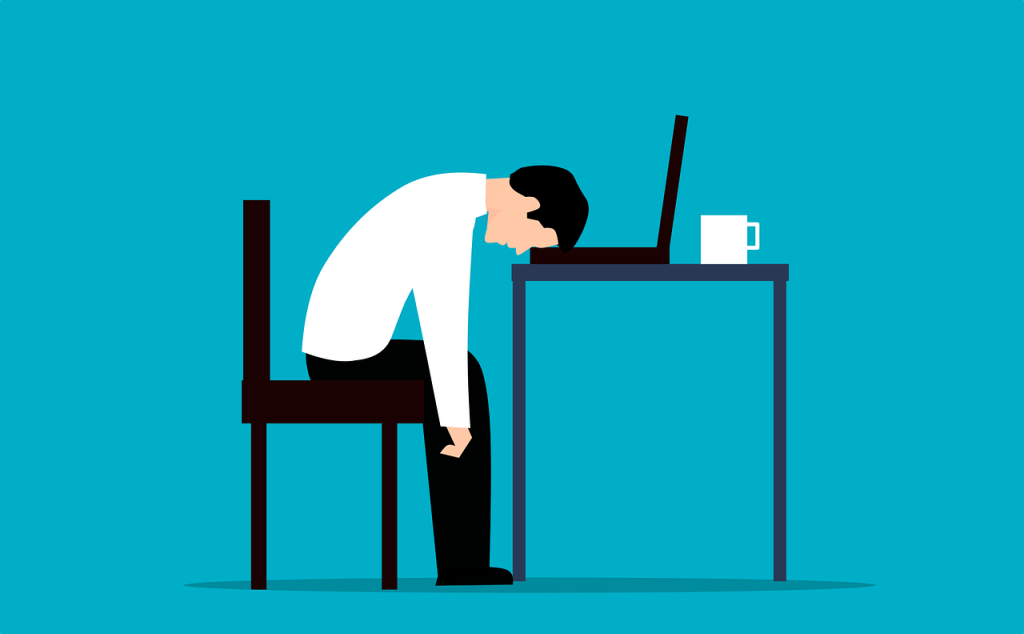Photo source: ‘Stress’, by Pixabay
As the term draws to a close, and the deadlines start to pile up, everything begins to feel overwhelming. Often, we lose motivation, and find ourselves burning out, which results in tasks being procrastinated and put off until a ‘better’ time. Procrastination can sometimes feels inescapable, therefore, we need to ask ourselves, what can be done, to prevent this vicious cycle? This article will explore the nature of procrastination, as well as, offer tips to tackle and avoid burnout.
The Nature of Procrastination
Time and time again, we ask ourselves why do we procrastinate? Especially, when we know that all it does, is make us more stressed and overwhelmed in the long run. However, procrastination isn’t simply about laziness or poor time management, it actually has deeper links to our psychology. Procrastination, at its core, is a coping mechanism, for when we experience emotions such are stress, anxiety and self-doubt. For instance, we might avoid starting a project for fear of failing.
Nowadays, we have apps for enjoyment right at our fingertips, which provide us with instant gratification. It is perfectly normal, when feeling overwhelmed, to look for distractions that will provide relaxation and comfort from our worries. Apps, such as TikTok, offer immediate dopamine hits, which counter the delayed rewards gained from completing an assignment.
How to Beat Procrastination
Luckily, by using the right tips and tricks, you can retrain your habits and reduce procrastination.
Breaking Down Tasks and Setting Specific Deadlines
When the deadlines begin to pile up, so can our stress levels, that is why it’s so important to break down the tasks that need completing. Jotting down a goal such as, ‘Write essay’ or ‘Revise’, is ineffective. Instead, try to set yourself a goal such as, ‘Complete essay introduction’, or ‘Revise one topic’. Planning your goals this way, makes everything seem more manageable, it is important to look at the little, rather than big picture. Also, try implementing set deadlines into your schedule. For instance, dedicate one day a week to reading or research, one day for essay writing, and another for revision (depending on what your degree requires the most). Creating specific deadlines, ensures that you feel less overwhelmed and can focus, with a clearer goal in mind.
Reward Yourself
University is both hard and demanding and often we forget to recognise this. Every now and again, it is important to reward ourselves with something special, whether that’s a coffee, sweet treat or a shopping trip, just make sure to pair work with rewards. Additionally, after a long study day, make sure that you are allowing yourself sufficient down time, to recharge for the upcoming days.
Test out Study Techniques
Study techniques, such as the Pomodoro Technique, can be incredibly effective in bettering focus. The Pomodoro Technique calls for focused intervals of study for 25 minutes, followed by a five-minute break. This keeps your energy levels high and prevents mental fatigue. Additionally, it is important to remove temptations too. Putting your phone on ‘Do Not Disturb’ or in another room, allows you to solely focus on the tasks at hand. Additionally apps, such as Flora, block social media usage for a selected period of time, and alternatively grow a digital tree.
Tips to Avoid Burnout
Burnout occurs when we overwork ourselves, prolonged stress can negatively impact both physical and mental energy. This leaves you feeling exhausted and unmotivated. Here’s how to reduce burnout and keep motivated.
Prioritising Self-Care
It is crucial that, during the busy periods, you are taking good care of yourself. Getting adequate sleep, regular exercise, and eating a balanced diet, are all fundamental for maintaining energy and focus levels. Moreover, fresh air always help, even if its just a short walk to relax.
Making an Effective To-Do List
To-do lists are a great way to break down the many tasks we have to complete. However, if your are not effectively making to-do lists, they can do more damage than good. For example, a cluttered to-do list is overwhelming and can make the tasks seem endless. Make sure to prioritise your tasks in terms of their importance, this allows you to focus on the most vital tasks. It is important to keep your to-do lists minimal, limit them to 3-5 tasks. Unrealistic to-do lists can leave you feeling defeated when you do not complete everything you planned to do.
Remember productivity isn’t about working non-stop; it’s about working smart, whilst still incorporating balance into your schedule.
Edited by Sophia Tilbury.


